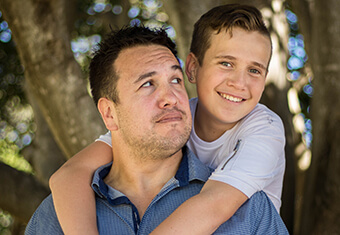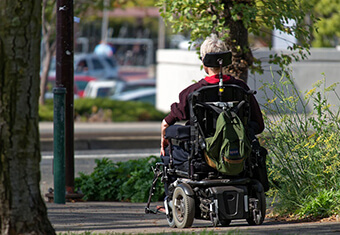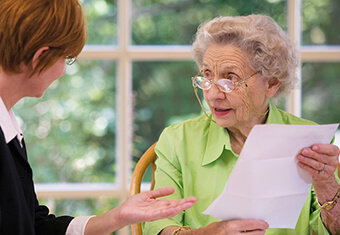The Bank of Mum and Dad – sometimes referred to as BOMAD – Is the UK’s ninth biggest lender. With recent cost of living pressures and property prices unachievable for many, thousands of young adults need help to get started with their first home. But before you hand over the money, there are some important legal and tax issues to consider.
For ease, in this article we refer to ‘Mum and Dad’, but similar issues apply for other family members, such as grandparents, aunts/uncles, etc.
Is it a loan, gift or something else?
Are you planning to offer a loan (that you expect to be repaid one day), a gift or buying a share of the property?
Buying a share in a property
If you were thinking about buying a share in a property with one of your family, think again. The extra 3% Stamp Duty (Land Tax) charge, which applies to purchases involving someone who already owns a home, makes this a very costly option. For example, buying a £300,000 house costs an extra £9,000.
Gifting money
If you can afford to make an outright gift, and don’t need the money repaid later (say) for your own retirement, you need to consider fairness to the rest of the family. Can you afford to give your other children a similar amount? If not, you may need to amend any wills or trusts to enable this.
You also need to consider the impact of tax if you make a gift. Such a gift may use up your inheritance tax allowance (called the nil-rate band) as lifetime gifts are considered ahead of your estate on death.
Loaning money
Research suggests one third of parents won’t give their children money as a gift because they fear it may be lost in a divorce.
You may therefore think a loan is a better option for many. Three issues need consideration:
(1) The lender’s requirements, if there is a mortgage:
Any bank or building society will want to ensure that no one else has an interest in this property, and that there is no other claim on the ‘equity’ in the property. They will normally ask the customer to sign a form confirming that any money received was a gift and not a loan.
If this is done, it is hard then to claim later, e.g. if there were a divorce, that this was really a loan. This points to the value of (2).
(2) A pre-nuptial (‘pre-nup’) or post-nuptial (‘post-nup’) agreement, before or after marriage
This is a very sensible, practical answer. It can work as the English courts effectively recognise pre-nups and post nups, and will normally consider them in the event of a divorce.
There are two provisos. Each party needs to make the agreement once they have had independent legal advice, based on full disclosure of financial facts. Secondly, fairness. No agreement can override a claim by a child of the marriage, and it cannot leave one party in a situation of real need.
Suggesting a pre-nup, ahead of the happy day, appears an un-romantic, negative comment on the relationship, whether driven by parents or the ‘other half’. It may, however, be possible to present this as a good package.
Parents can offer to give a sum towards the first home if tied in with a pre-nup or post nup. They can always blame the lawyers as the ones advising this is good practice! The ‘in-law’ can be reassured the same principle would apply to gifts to any of the children. It’s not a reflection on their specific relationship!
There are two lessons from storylines in the Radio 4 soap, The Archers. Firstly, don’t suggest this on the eve of a wedding, as (apart from bad timing) it must be signed at least 28 days ahead. It’s important an individual isn’t under duress. Secondly, don’t offer financial help and then later suggest a pre-nup. It is far better as one offer!
(3) What about using a trust?
You may wish to consider putting your gift into a trust, which then either:
• Owns the property, if the whole thing is bought, or a share in it; or
• Makes a loan.
Apart from the same issues above in making a loan, two issues need addressing. Firstly, the 3% extra Stamp Duty charge (see above) applies to most trusts, though in some cases careful planning might make a work around possible.
Secondly, divorce will create problems. The divorce court may look through the trust, assume the full value is available to the child and make an order allowing for that resource.
Trusts are increasingly vulnerable on divorce. Depending on the full circumstances and the detailed documentation, a little protection may be possible.
A simple declaration of trust, of different property shares reflecting contributions made, is of limited value. It often gets overlooked later and is essentially irrelevant as between married couples.
Other tax issues arising for these arrangements include:
• Inheritance tax: it’s good to set the ‘seven-year clock’, for surviving a lifetime gift, running, but take care on details, and
• Capital Gains Tax (CGT) and the [crucial] main residence exemption.
Conclusion: While a pre-nup (or post-nup) may be right for some, the key thing is to take specific advice (ideally from a STEP member with relevant expertise) on the details of your situation. Be clear about what you are trying to achieve, and any concerns you have, and find a solution that works for you.
John D. Bunker, TEP CTA Consultant Solicitor & Chartered Tax Advisor; and Hayley Trim, Family Law Partner.
 UK
UK  Canada
Canada















